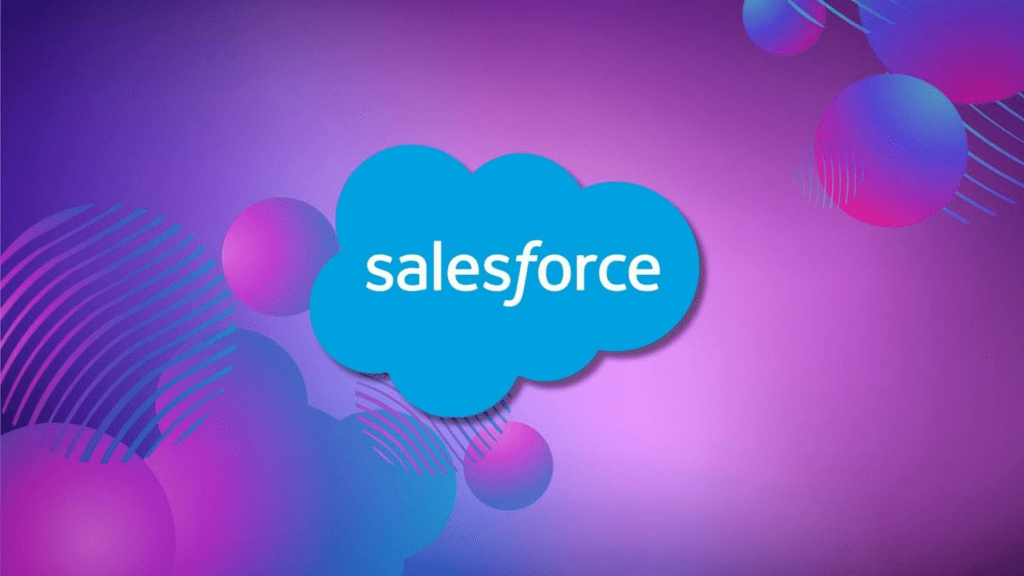What Does Salesforce Do? A Deep Dive Into the #1 CRM Platform

Here’s the thing – businesses no longer win by simply selling great products—they win by delivering exceptional experiences. Enter Salesforce, a tool that’s more than a CRM. It has become the nerve center for companies looking to grow. Doesn’t matter if it is a small startup or a global conglomerate, chances are Salesforce is powering some part of its operation. But what exactly does Salesforce do and why does everyone speak so highly of it? Let’s find out in this guide. What Is Salesforce? Salesforce is a cloud-based platform that began as a customer relationship management (CRM) tool in 1999. It changed the way its clients handled their customer data by offering the following: An accessible and scalable solution A user-friendly interface to manage customer data Regular updates to fine-tune options Early adoption of the SaaS model Over time, Salesforce metamorphised into a holistic customer success platform. It included a wide range of products, including: Sales Cloud Service Cloud Marketing Cloud Commerce Cloud AI-powered Einstein analytics. Apart from these, it offered tools like Customer 360, AppExchange, and automation solutions such as Flow and Omniscript. These tools were designed to help businesses create a connected and personalised customer experience. Key Functions of Salesforce: What It Offers Salesforce offers a wide range of functions with an aim to streamline business operations and improve business performance. Here they are: CRM: Focuses on improving sales performance. It centralises customer data and tracks interactions. Sales Cloud: Automates and manages the entire sales process. It handles everything from lead generation to closing deals. Service Cloud: Provides tools for delivering responsive customer support. Offers features like case management, self-service portals, live chat, etc. Marketing Cloud: Enables businesses to create and manage multi-channel marketing campaigns. The campaigns are targeted thanks to the stored customer data and AI-driven insights. Einstein AI: Offers predictive analytics and smart recommendations. It uses automation to support data-driven decision-making across departments. Flow and Automation Tools: Automates routine tasks and complex workflows. This helps increase efficiency and reduce manual errors. AppExchange: A marketplace with thousands of prebuilt apps and integrations, allowing businesses to customise and extend Salesforce functionality. Customer 360: Unifies data from different departments and touchpoints, providing a complete view of each customer for a seamless experience. Salesforce Architecture: How It Works Salesforce operates on a multi-tenant cloud architecture. In simple words, it means a single instance of the platform serves multiple customers. But their data is kept isolated and secure. Such a secure design allows businesses of all sizes to access the same infrastructure and features of Salesforce without needing to manage hardware or software installations. Most importantly, each organisation’s data is securely stored and logically separated. This ensures privacy while benefiting from shared resources and scalability. The platform is built on a metadata-driven framework. This means users can customise applications without altering the underlying code. Such flexibility allows for rapid development and deployment of tailored solutions. Salesforce’s architecture includes robust APIs, facilitating seamless integration with external systems. Additionally, the platform incorporates advanced features like artificial intelligence through Einstein AI, providing predictive analytics and automation capabilities. Maximising ROI with Salesforce Implementation Implementing Salesforce can deliver significant returns on investment for your business. There are three ways in which this happens: by streamlining operations, by enhancing customer engagement, and by driving smarter decision-making. For starters, with its centralised CRM and automation tools, Salesforce reduces manual tasks and accelerates workflows. It quickly improves team productivity across sales, marketing, service, and IT. These efficiency gains translate directly into cost savings and faster time to value. Secondly, Salesforce strengthens customer relationships by enabling personalised interactions at every touchpoint. Features like Marketing Cloud, Service Cloud, and Customer 360 allow you to tailor experiences based on customer data. This leads to better retention and lifetime value. Finally, when used strategically, Salesforce not only increases operational effectiveness but also unlocks new revenue opportunities through smart decision-making, making it a powerful investment for long-term business growth. Further Reading: How Small and Medium-Sized Businesses Can Maximize ROI with Salesforce Empowering Sales Teams with Sales Cloud Salesforce Sales Cloud is built to boost sales productivity by streamlining lead management and accelerating deal closures. It helps sales teams: Capture and nurture leads through every funnel stage. It uses tools like lead scoring and automated follow-ups to achieve this. Offer a complete view of each prospect, including interaction history and key insights. This enables more personalised and effective engagement. Enhances forecasting by providing real-time visibility into sales performance and pipeline health. You can identify trends and set targets using built-in analytics and dashboards. Apart from this, features like opportunity tracking and AI-powered insights from Salesforce Einstein equip your team to drive consistent revenue growth, no matter where they are. Enhancing Customer Service via Service Cloud Salesforce Service Cloud is designed to elevate customer support by providing a unified platform for efficient case management and seamless omnichannel communication. It enables: Service teams to track, manage, and resolve customer issues quickly using automated case routing and a knowledge base for instant answers. Agents to have a 360-degree view of the customer, including past interactions and preferences. This allows for more personalised and effective support. Agents to communicate across multiple channels—including email, phone, chat, social media, and messaging apps—so customers can reach out using their preferred method. With AI-powered features from Einstein, agents get real-time recommendations and the next-best actions, further speeding up resolution times. Driving Marketing Success with Marketing Cloud Salesforce Marketing Cloud empowers you to deliver personalised, data-driven marketing campaigns across every digital touchpoint. Here are its key capabilities: It uses customer data from various sources to give you a better understanding of audience behavior and preferences, Ultimately, you can create tailored messages that resonate with your target audience. With tools like Journey Builder, Email Studio, and Mobile Studio, you can design targeted campaigns that guide customers through personalized journeys. It automates key marketing processes to improve efficiency and consistency. Features like AI-powered insights from Einstein help optimize send times, predict customer behavior, and refine

